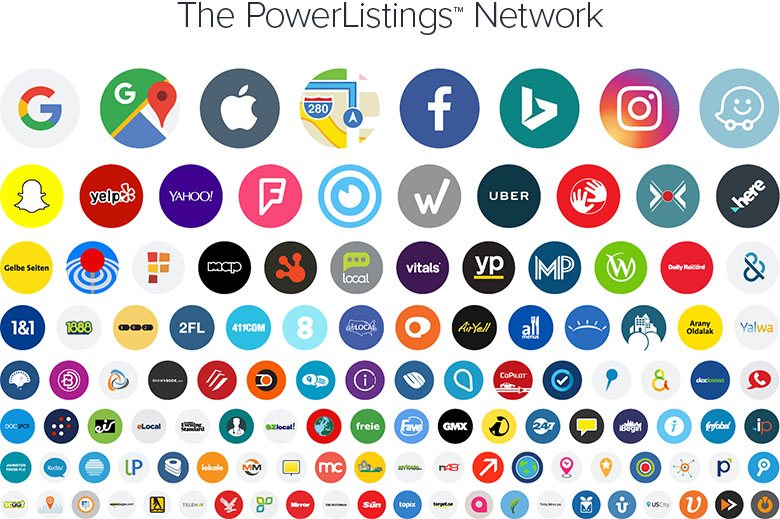Industry Insights
A Better Way: Reach, Access, Details & Scale (Part 2 of 10)
If I tasked you with delivering ten heavy packages to the top floor of a skyscraper, which would you take: the elevator or the stairs? The elevator, of course, because it’s faster, takes less effort, and requires fewer trips. Time is money, after all. If you still rely on manual submission to manage the updates […]

If I tasked you with delivering ten heavy packages to the top floor of a skyscraper, which would you take: the elevator or the stairs? The elevator, of course, because it's faster, takes less effort, and requires fewer trips. Time is money, after all. 
If you still rely on manual submission to manage the updates to your local listings and other digital knowledge online, guess what? You're taking the stairs in an age of elevators — and getting lapped by your competition that uses Yext in the process. There are four reasons why:
- Reach
- Access
- Details
- Scale
#1: Reach
Hands-down, Yext reaches the largest number of maps, apps, directories, search engines, GPS systems, social networks, and digital assistants today through our PowerListingsⓇ Network. We're talking 100+ intelligent services including:
- Global services like Google, Apple Maps, Facebook, Bing, & Yahoo.
- Digital assistants like Cortana, Google Assistant, and Siri.
- GPS and navigation services like HERE, TomTom, and Waze.
- Regional services like Gelbe Seiten, Yell, and YP Canada.
- Vertical services like EZDoctor and Vitals.
The long tail of intelligent services matters. Consumers use these services, and as long as that's the case, your brand needs to be there with accurate information (more on that to come in Part 5 of this series). Yext makes updating these services easy with the "update once, publish everywhere" simplicity of the Yext Knowledge Engine.

#2: Access
Even if you wanted to update all of the PowerListings Network member services manually, you could not for two reasons.
First, many PowerListings Network members do not offer a manual update option. They require direct integrations. Apple Siri is the perfect example. If you want to update your location information on Siri, you must have a direct integration with Apple Maps — something Yext has had since 2015. If you don't have an integration with Apple, you have no ability to update your information in their knowledge graph.
Second, there are certain types of digital knowledge that can only be updated via direct integrations including:
- Menus within Google Search. Real-time updates give restaurants the ability to be found on food searches ("pancakes," "curly fries," etc.) so as to attract more nearby searchers, and menus cards appear in the organic search results.
- Featured Messages. Yext's patented Featured Message provides brands with the ability to increase response by adding promotional messages (discounts, sales, special event notices, etc.) to local listings across many of our PowerListings Network member services.
- Uber Drop-Off/Pick-Up Points. Yext's Uber integration lets companies manage specific drop-off/pick-up points, so you can distinguish customer entrances from service entrances and more.
Stick with manual submission, and you're not only having to work harder but also missing out on these additional features and points of distribution for your brand.
#3: Details
As I shared in Part 1 of this series, according to Google, 70% of the mobile searches for "hotels" last year included an amenity like "hotel with jacuzzi in the room" or "pet friendly hotel near me." That's a whole new level of detail that consumers expect to receive on demand from intelligent services. And each of those more granular searches is an immediate business opportunity that your brand should be competing to convert.
But you can't convert them if you don't source, publish, and regularly update deep knowledge about your people, products, and locations. That's why as intelligent services serve up new details about businesses, Yext works behind the scenes to let our customers directly manage those attributes via the Yext Knowledge Manager interface.
So go ahead, search for "curly fries near me," and our good friends at Arby's show up. They not only have "all the meats," they also publish deep knowledge of their menu items via Yext to attract more customers. Details matter more than ever in our mobile-first, on-demand world.
#4: Scale
The final advantage I'll share today that Yext has over manual submission is scale.
Manual submission simply does not scale. Even if it was physically possible, it is inherently cost prohibitive to manually update the 100+ intelligent services in the PowerListings Network every time you need to change a phone number, store hours, address, agent name or other piece of information.
By contrast, companies of all sizes — from one location to thousands — manage all of their digital knowledge at scale and at a fraction of the time and cost it would take to do it manually. But don't take my word for it, here's Andrew Shotland, a.k.a. the Local SEO Guide, with his thoughts on the matter:

Yext scales, gives your brand access to a wide variety of exclusive features, lets you manage deep knowledge about your people/products/locations, and reaches parts of the digital universe manual solutions simply cannot. Reach, Access, Details, and Scale — four more reasons I'm on Team Yext. In Part 3, I dig into why the dynamic nature of digital knowledge makes Yext a better way.
Looking for more? In my whitepaper, A Better Way with Yext, I provide a deep-dive into how Yext helps businesses of every size manage their digital knowledge and much more.
